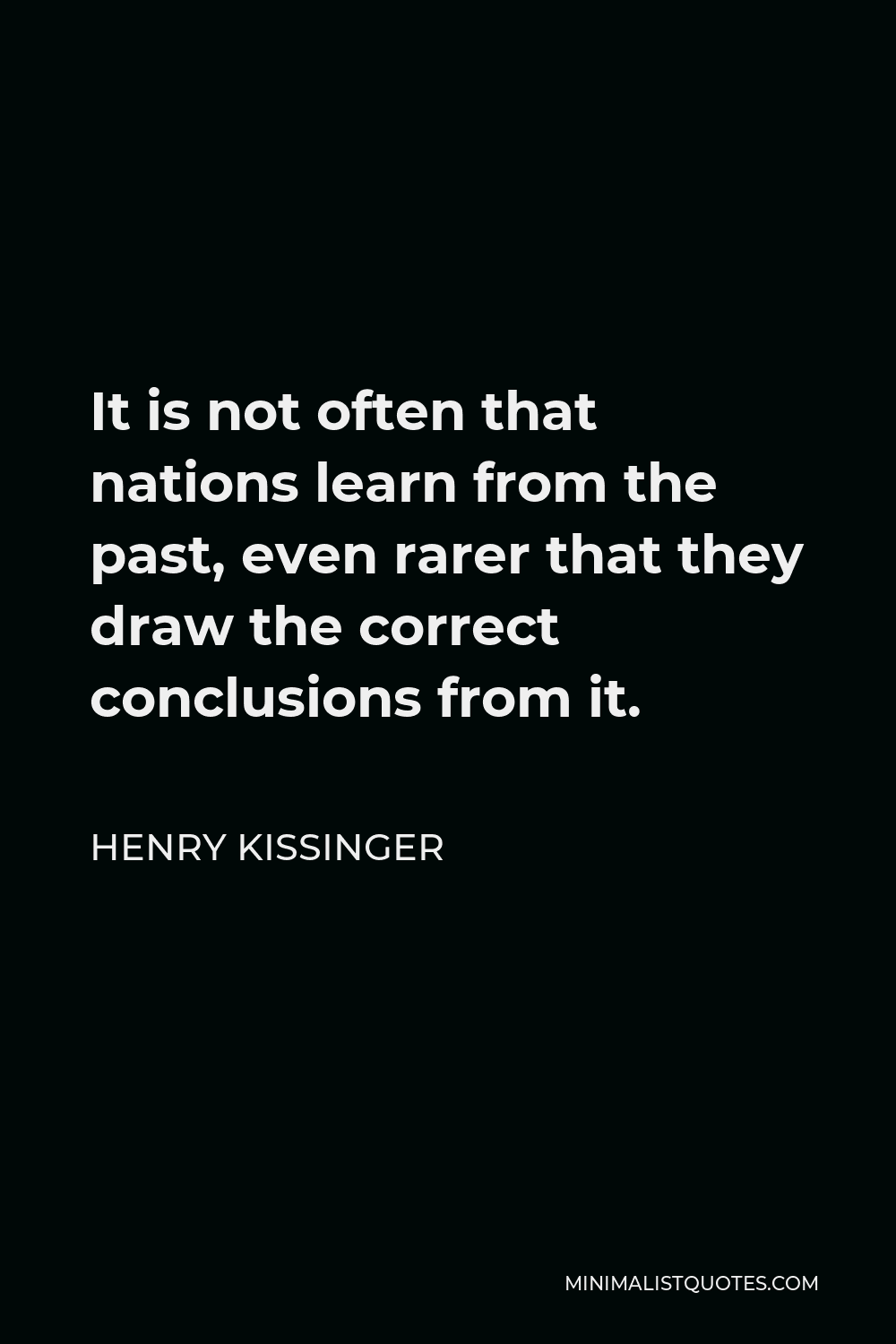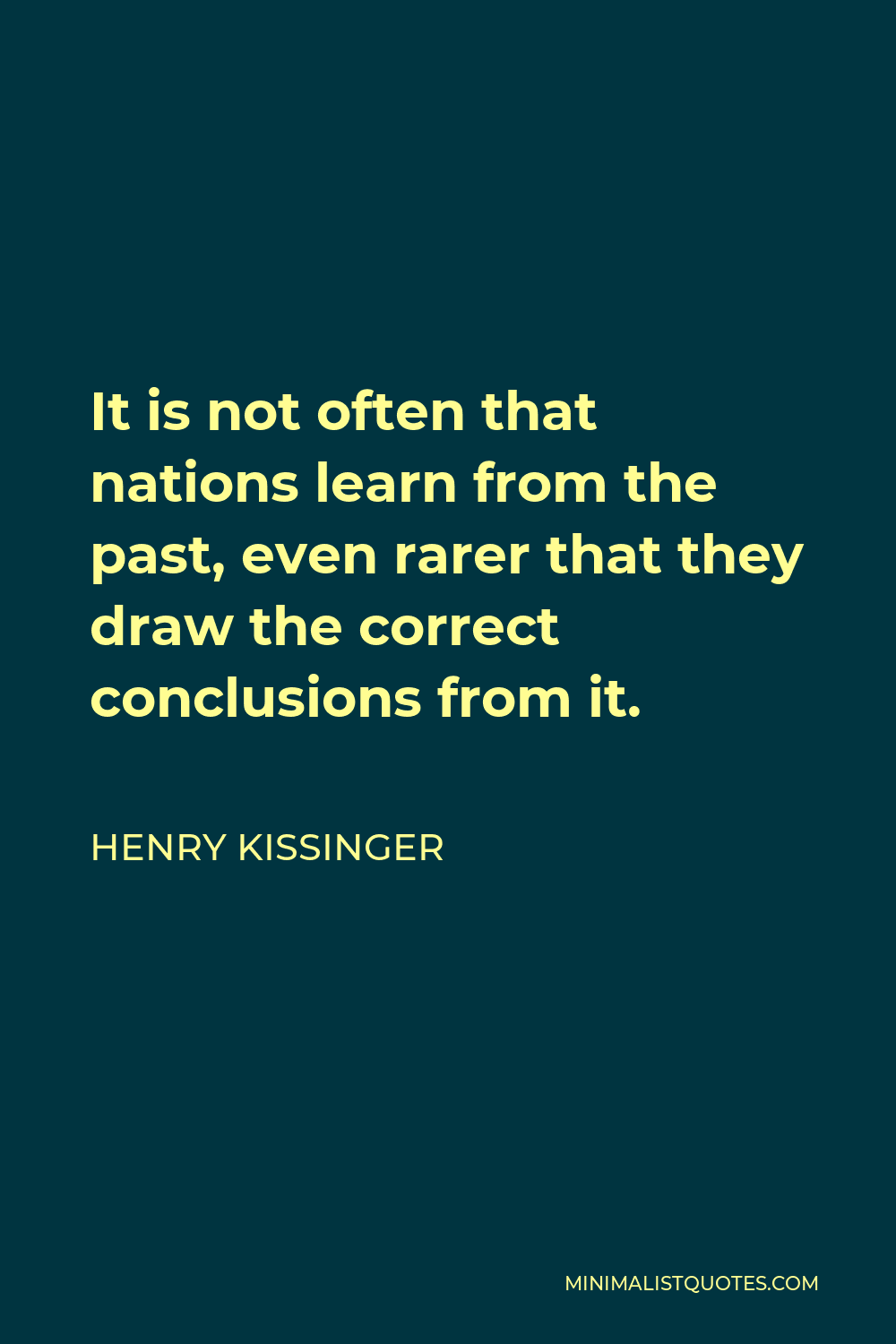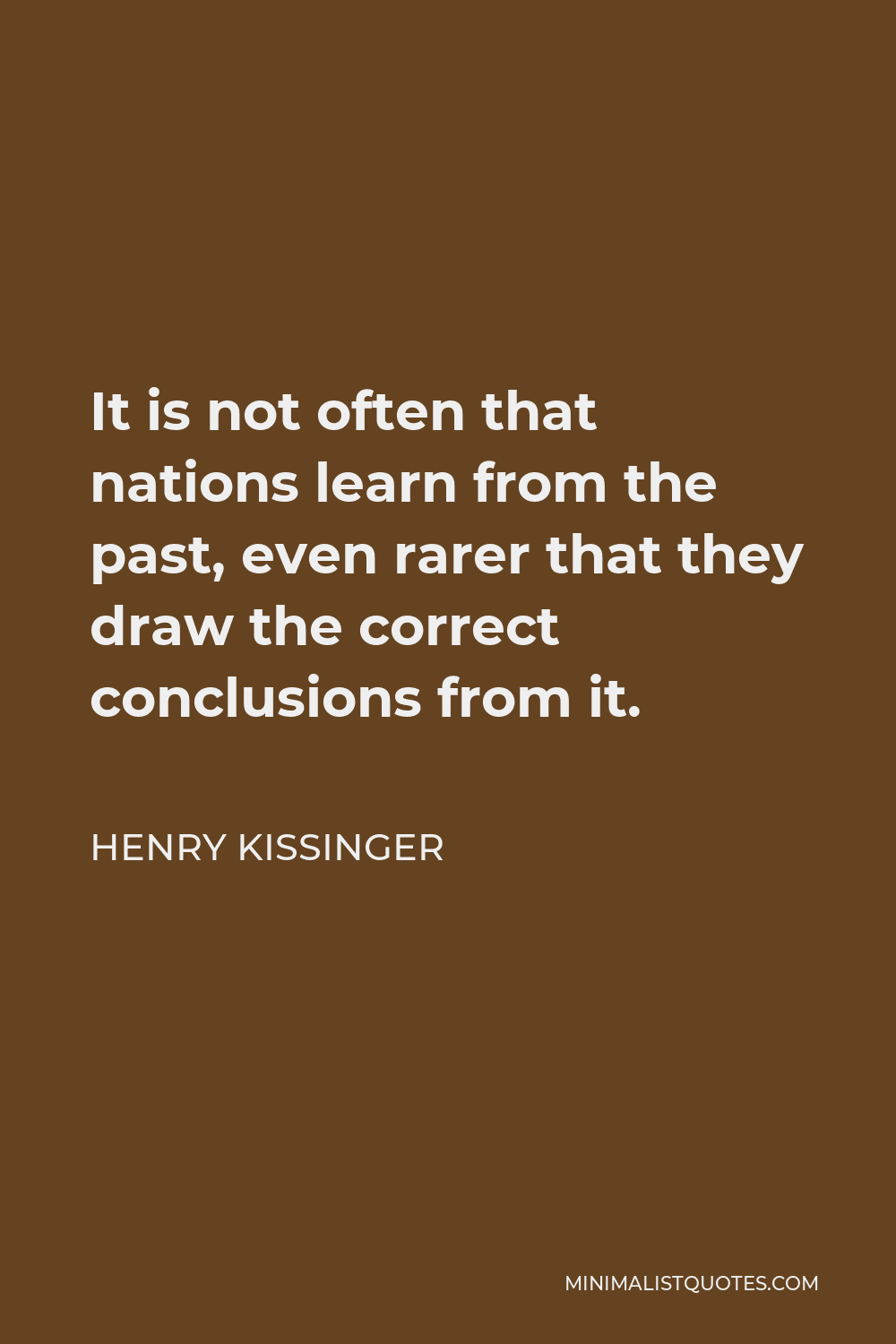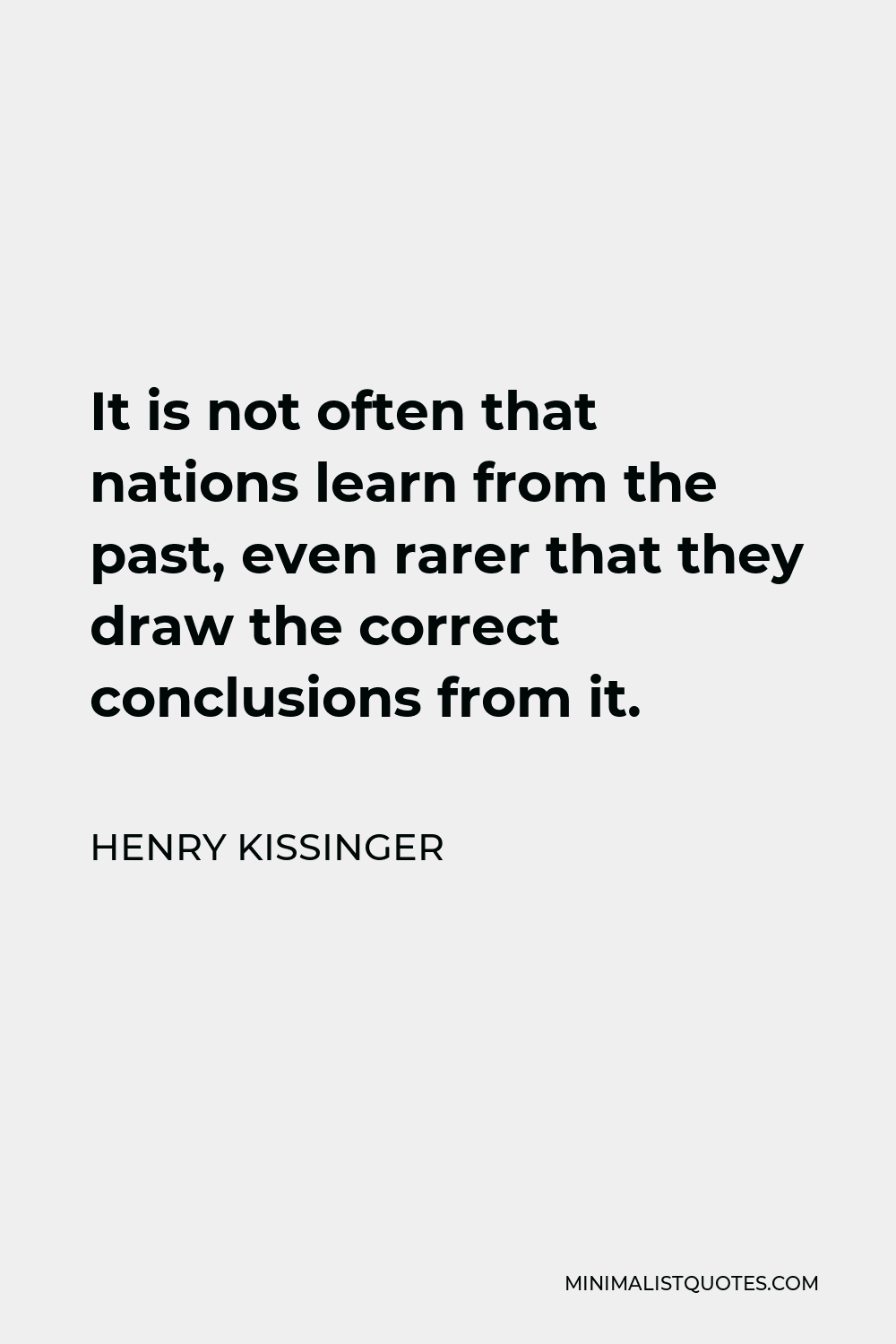Military men are just dumb, stupid animals to be used as pawns in foreign policy.
HENRY KISSINGERIt is not often that nations learn from the past, even rarer that they draw the correct conclusions from it.
More Henry Kissinger Quotes
-





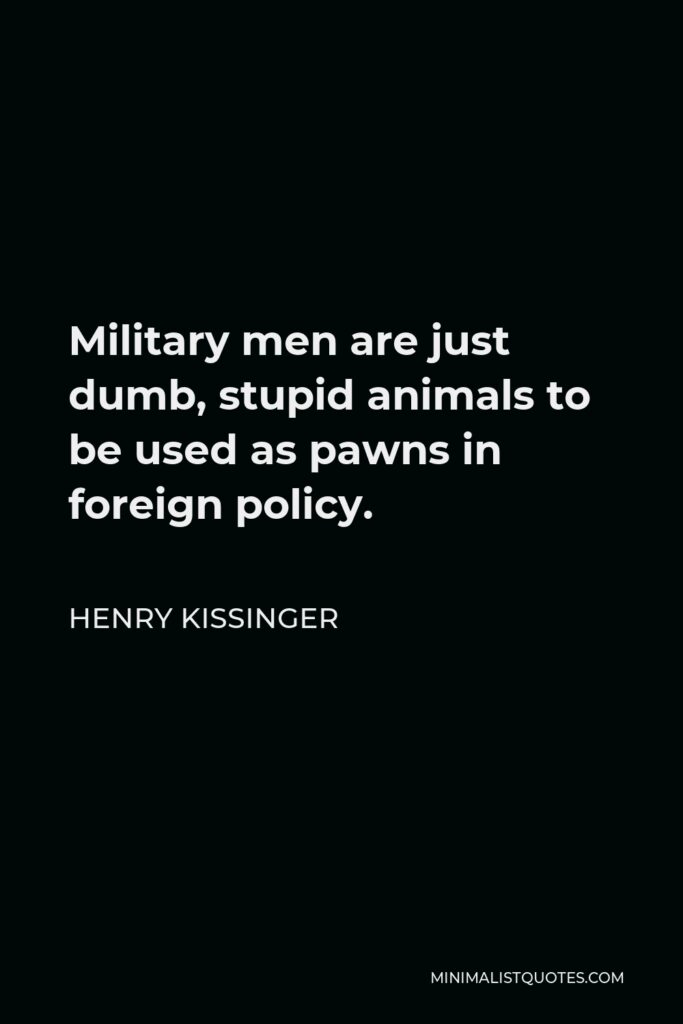

-





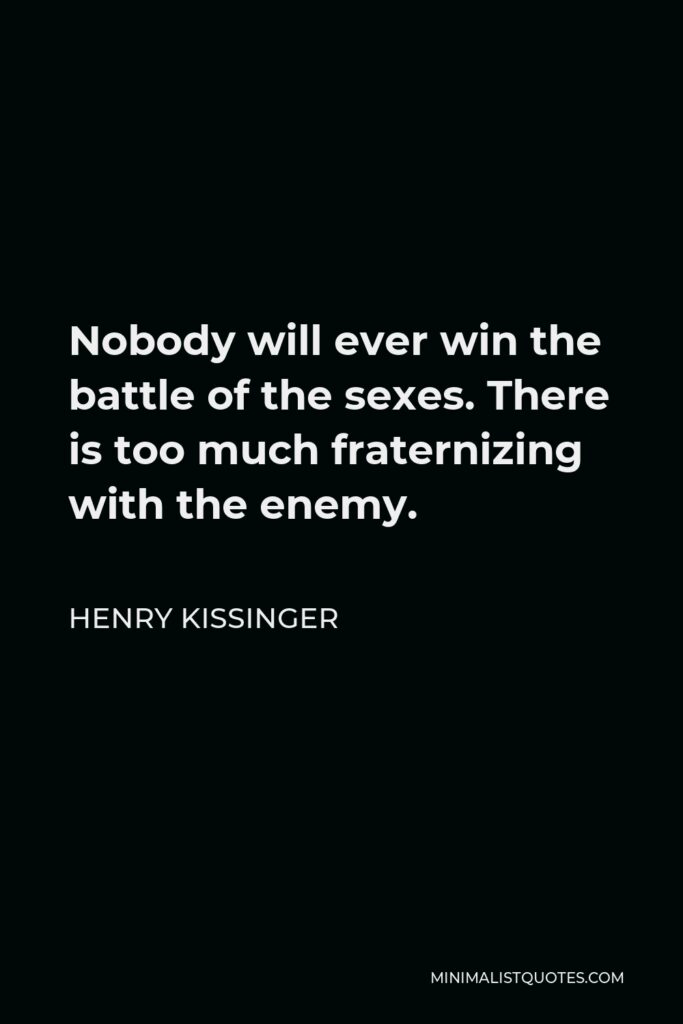

Nobody will ever win the battle of the sexes. There is too much fraternizing with the enemy.
HENRY KISSINGER -





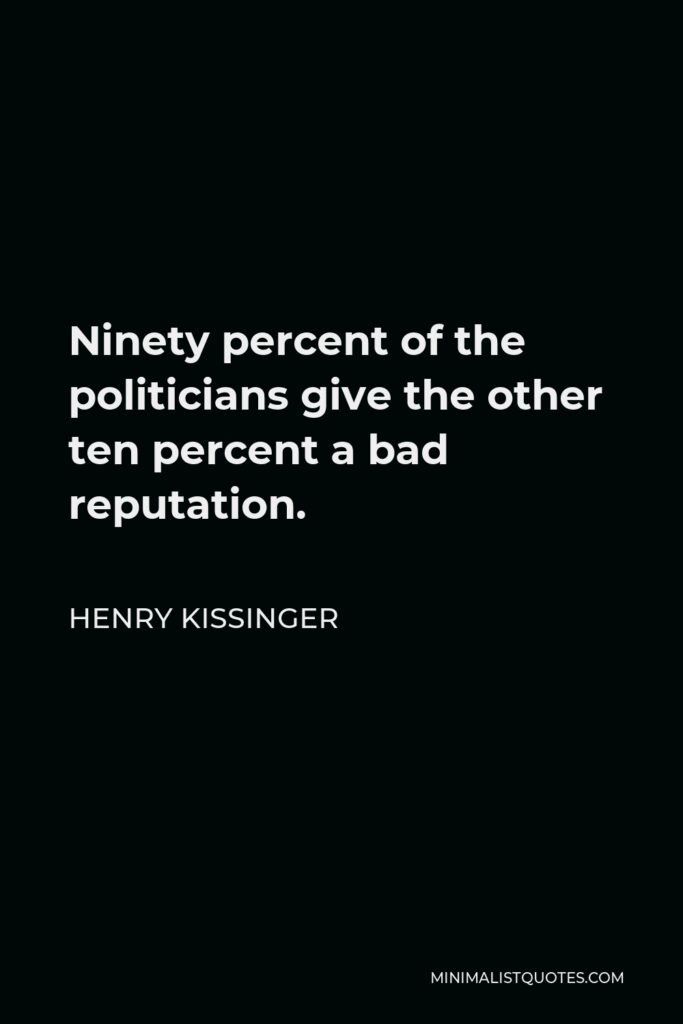

Ninety percent of the politicians give the other ten percent a bad reputation.
HENRY KISSINGER -







If you don’t know where you are going, every road will get you nowhere.
HENRY KISSINGER -





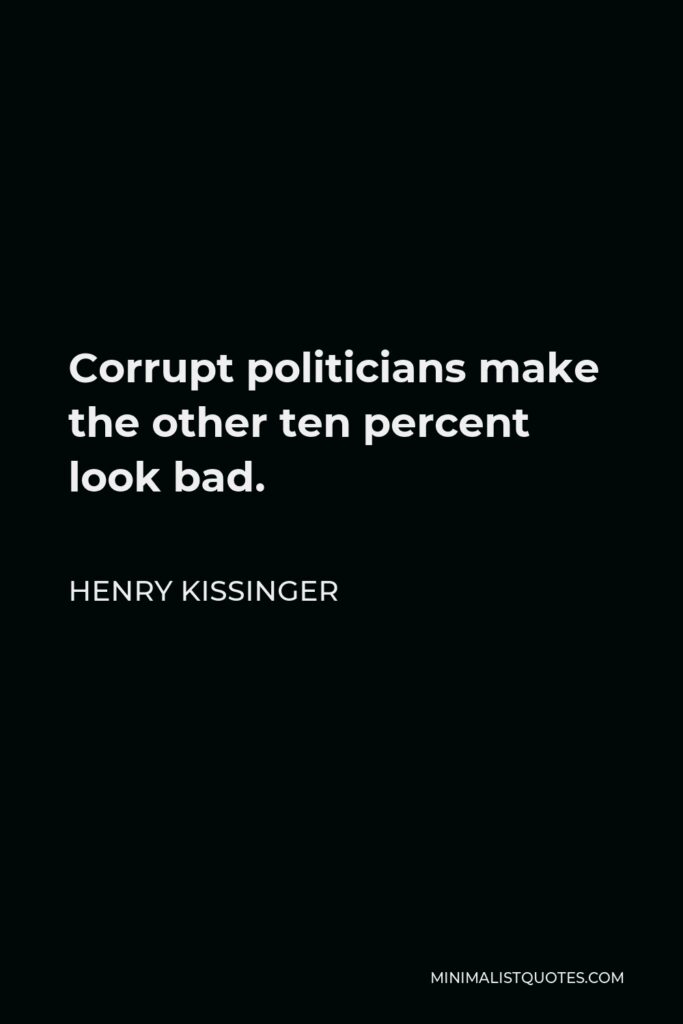

Corrupt politicians make the other ten percent look bad.
HENRY KISSINGER -







Don’t be too ambitious. Do the most important thing you can think of doing every year and then your career will take care of itself.
HENRY KISSINGER -





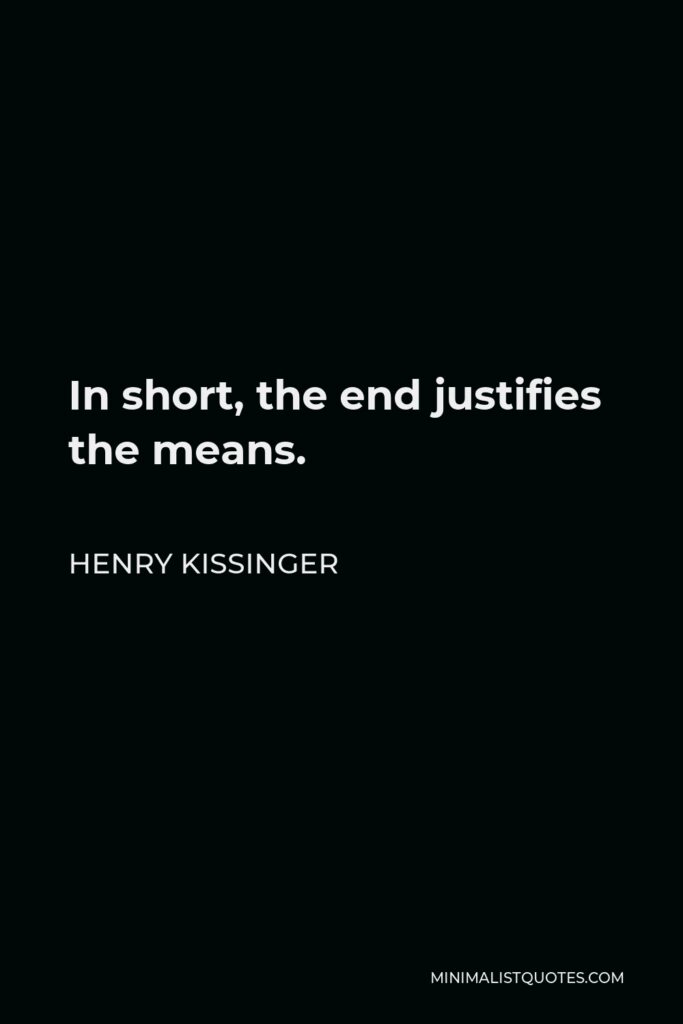

In short, the end justifies the means.
HENRY KISSINGER -





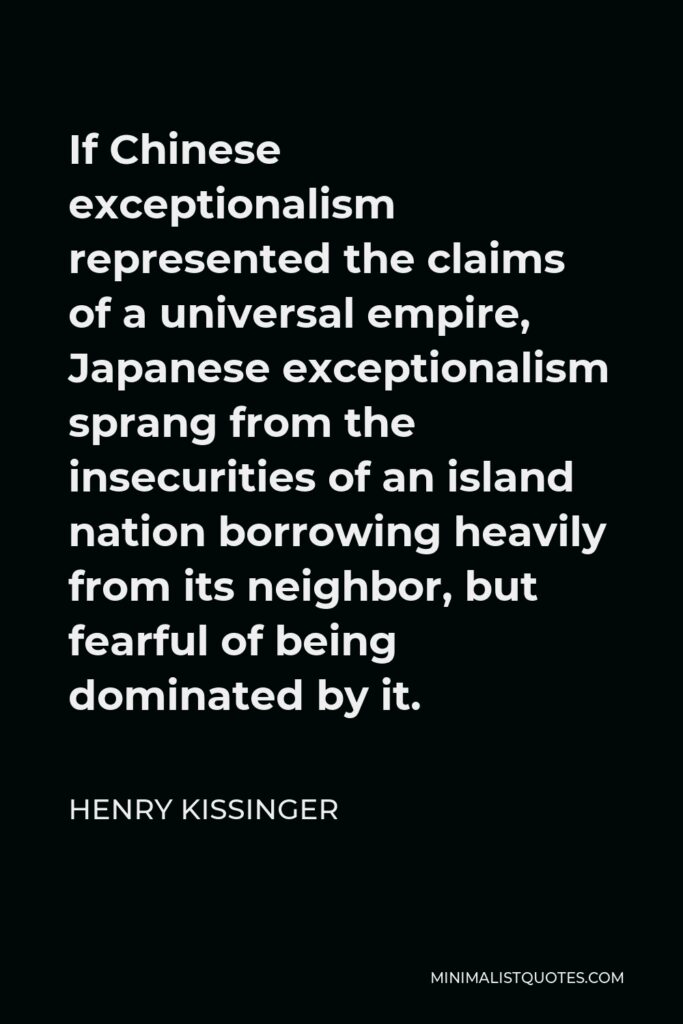

If Chinese exceptionalism represented the claims of a universal empire, Japanese exceptionalism sprang from the insecurities of an island nation borrowing heavily from its neighbor, but fearful of being dominated by it.
HENRY KISSINGER -





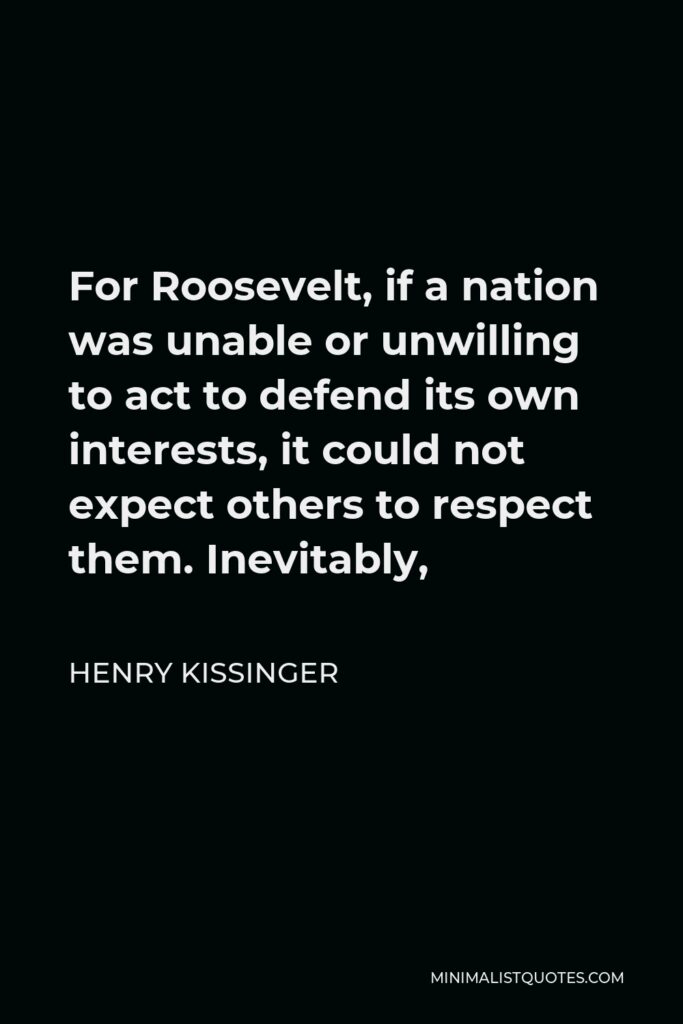

For Roosevelt, if a nation was unable or unwilling to act to defend its own interests, it could not expect others to respect them. Inevitably,
HENRY KISSINGER -





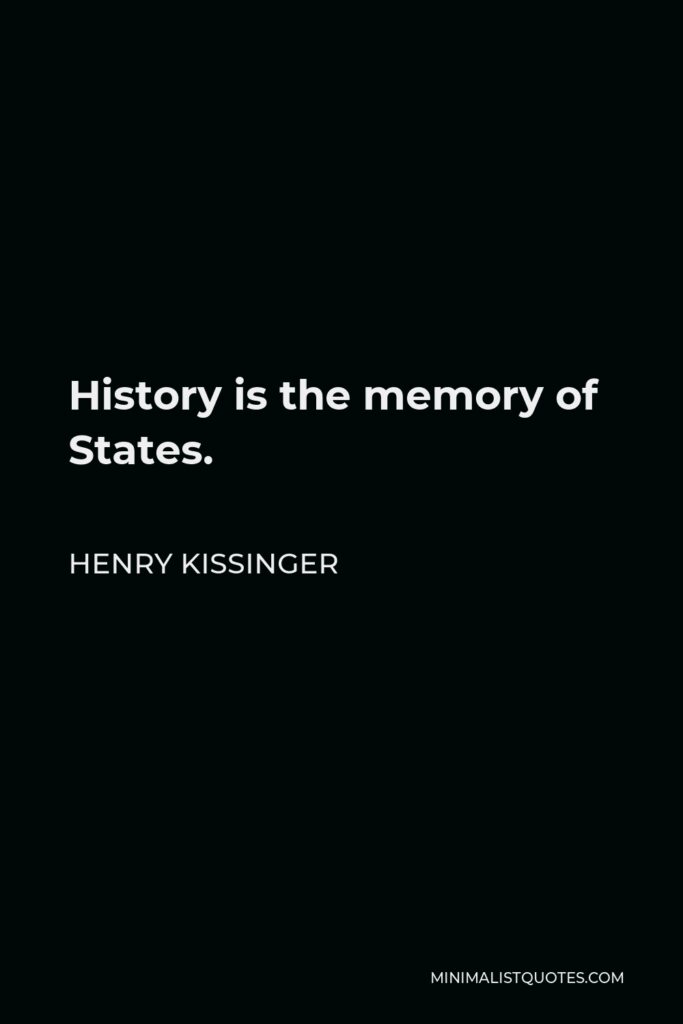

History is the memory of States.
HENRY KISSINGER -





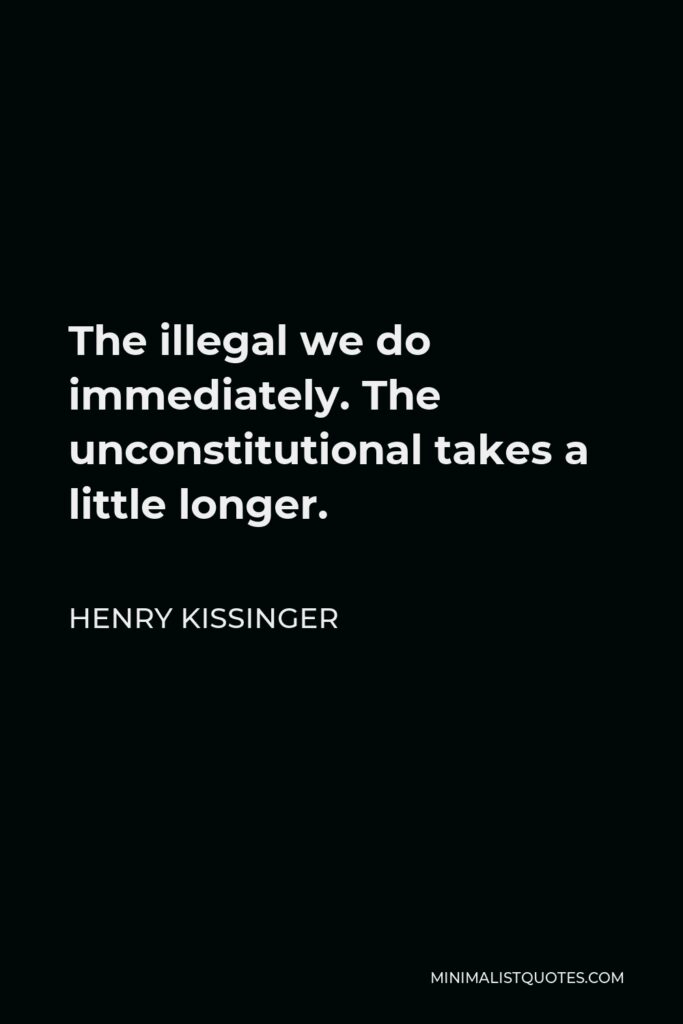

The illegal we do immediately. The unconstitutional takes a little longer.
HENRY KISSINGER -





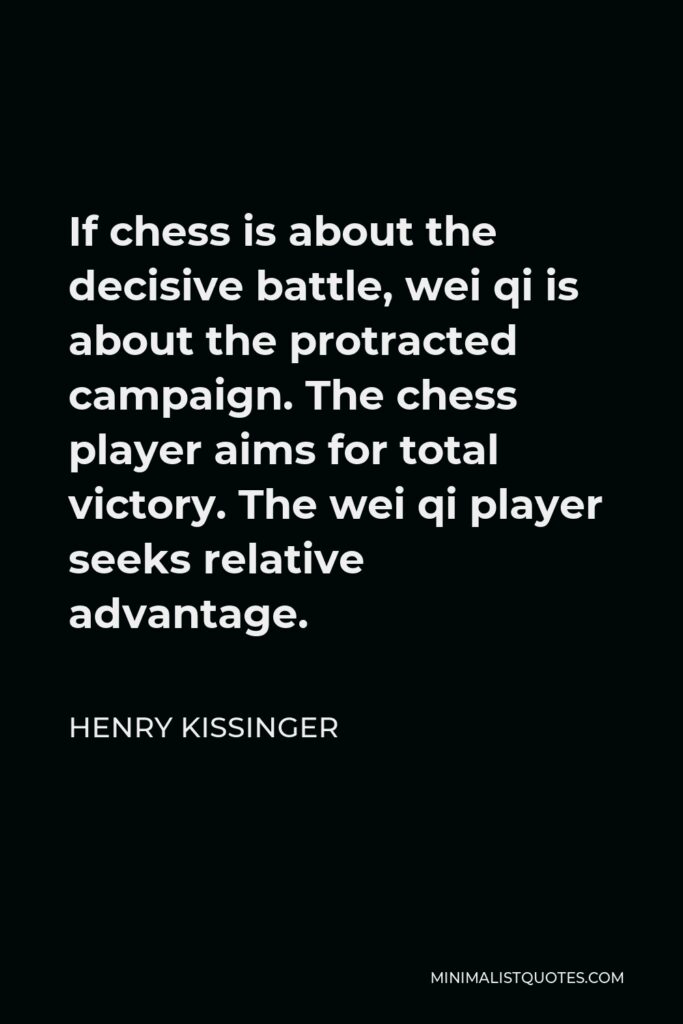

If chess is about the decisive battle, wei qi is about the protracted campaign. The chess player aims for total victory. The wei qi player seeks relative advantage.
HENRY KISSINGER -





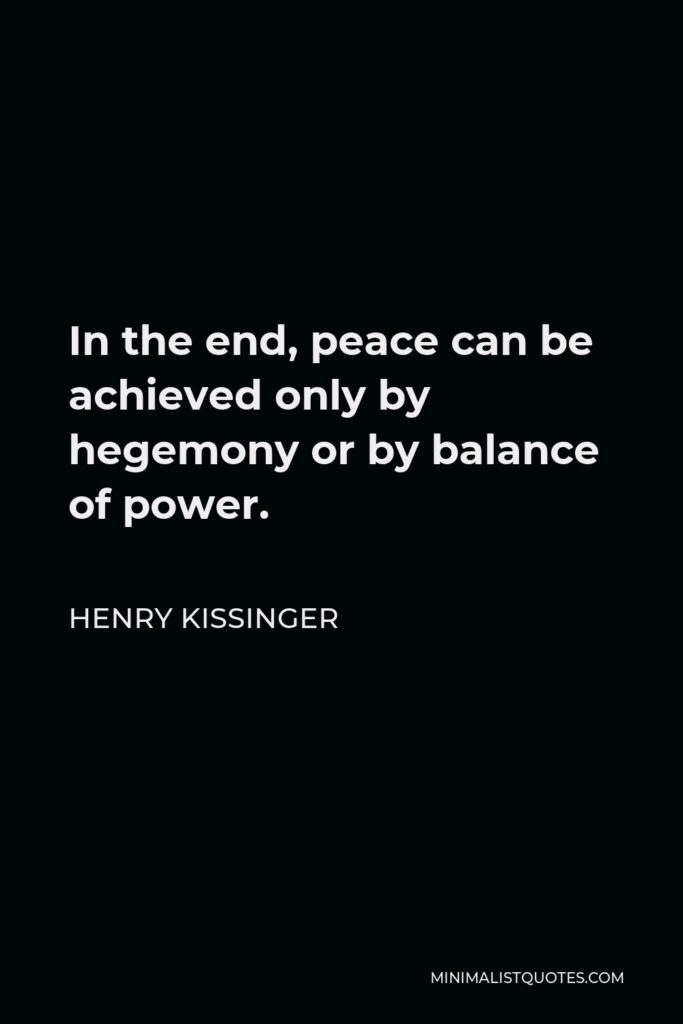

In the end, peace can be achieved only by hegemony or by balance of power.
HENRY KISSINGER -





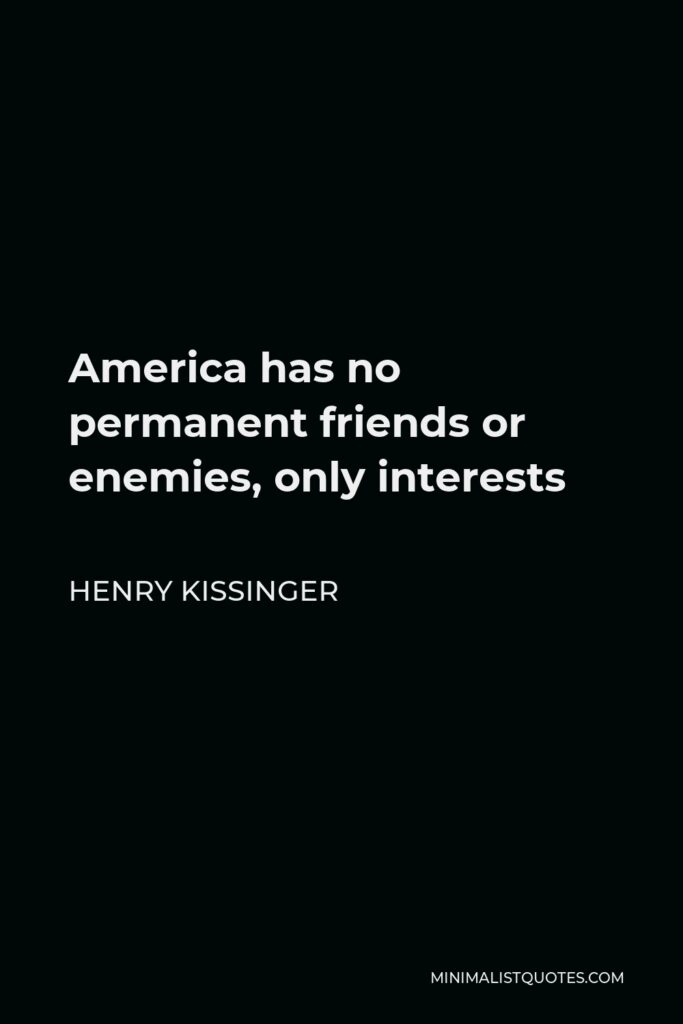

America has no permanent friends or enemies, only interests
HENRY KISSINGER -





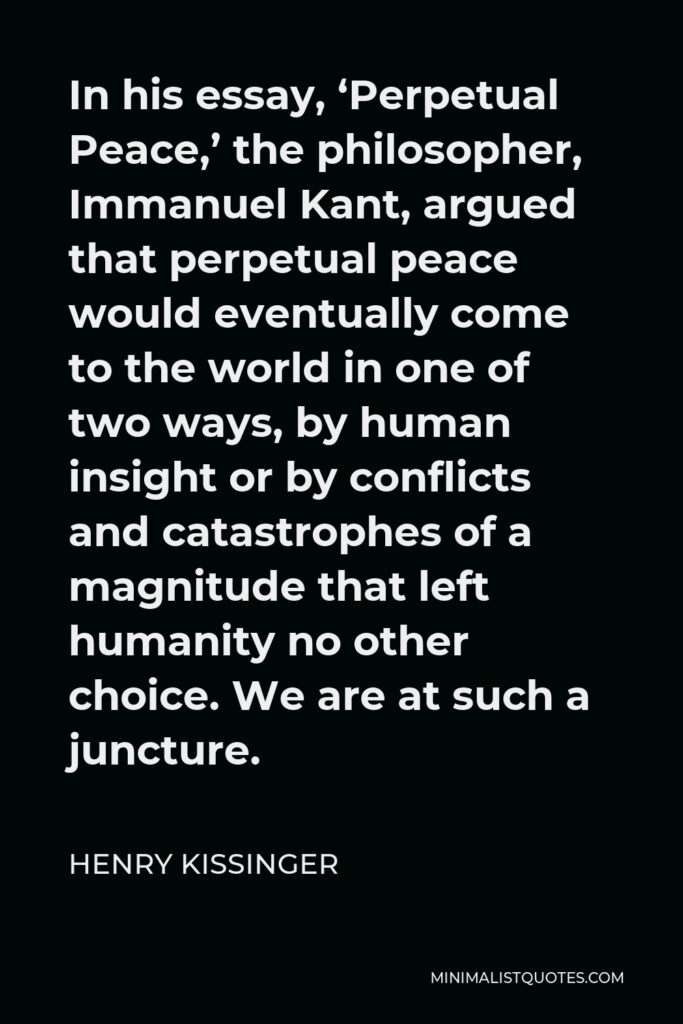

In his essay, ‘Perpetual Peace,’ the philosopher, Immanuel Kant, argued that perpetual peace would eventually come to the world in one of two ways, by human insight or by conflicts and catastrophes of a magnitude that left humanity no other choice. We are at such a juncture.
HENRY KISSINGER -





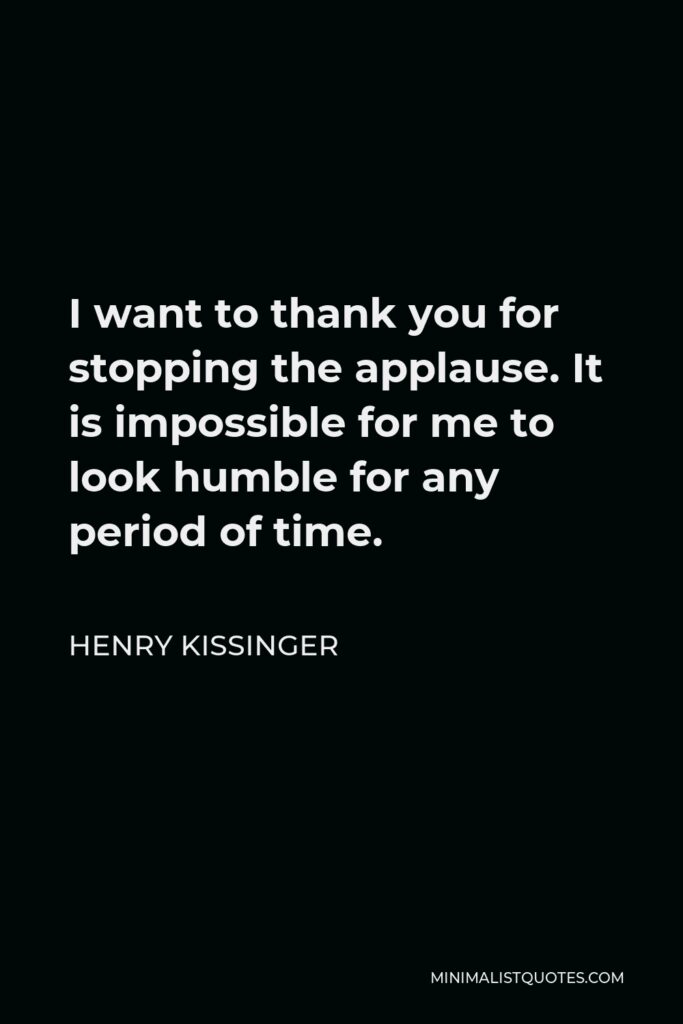

I want to thank you for stopping the applause. It is impossible for me to look humble for any period of time.
HENRY KISSINGER
